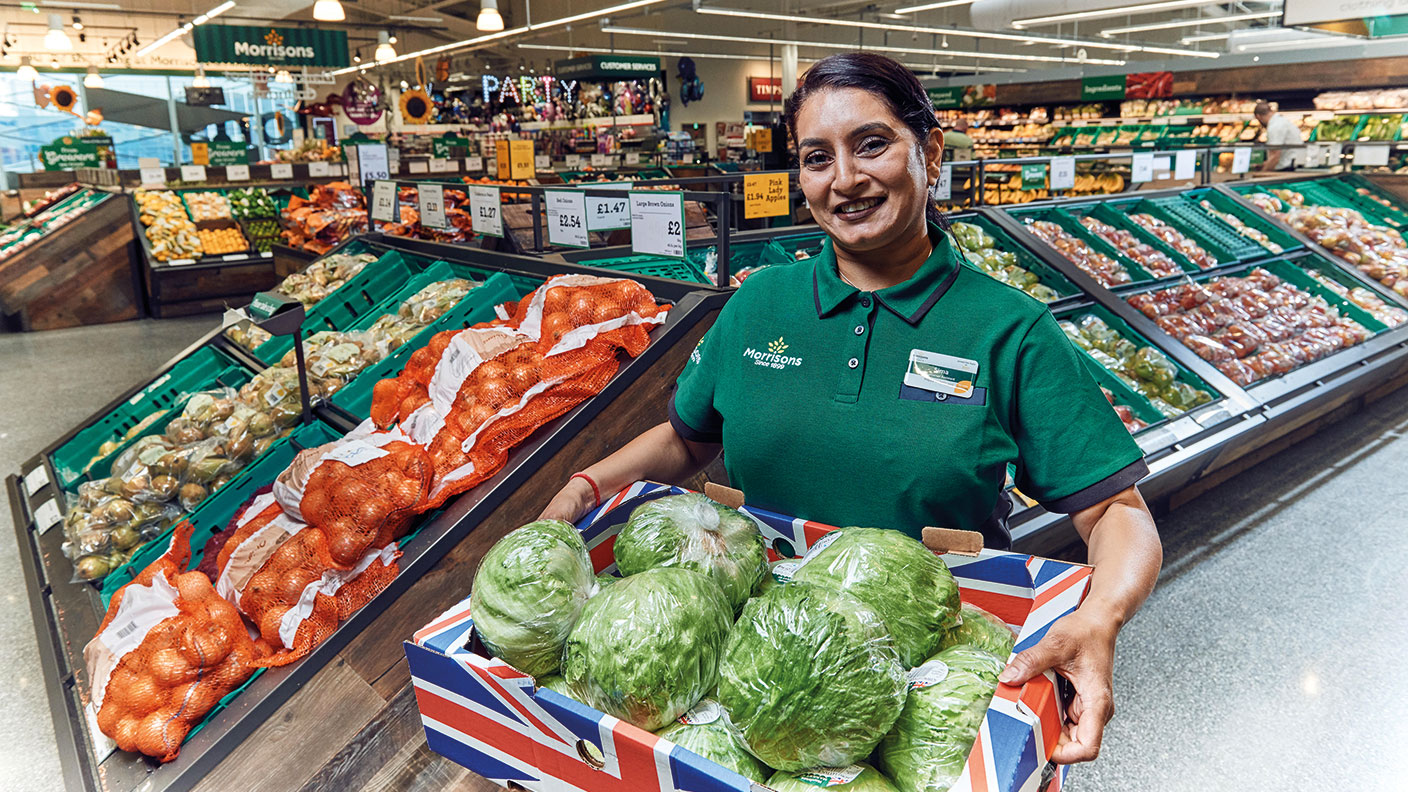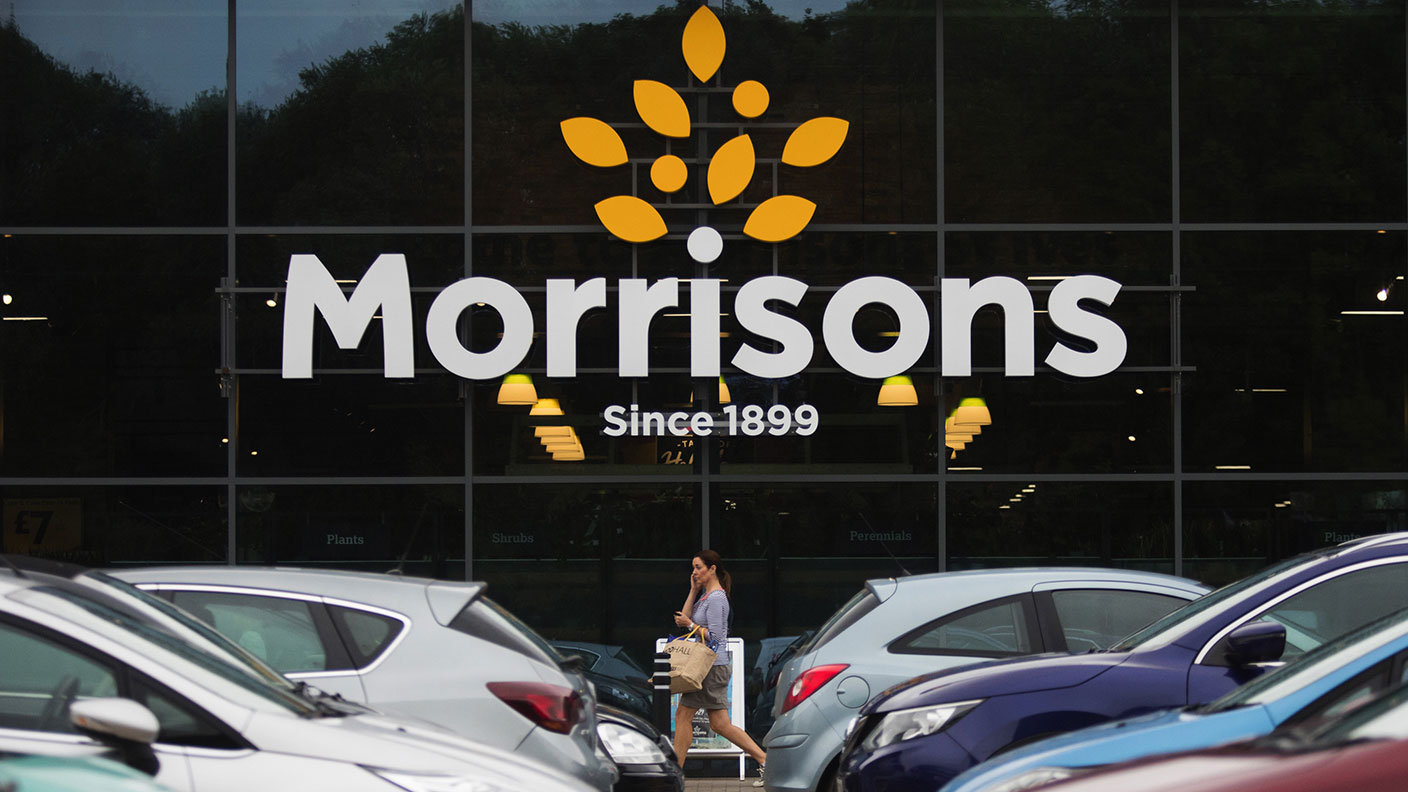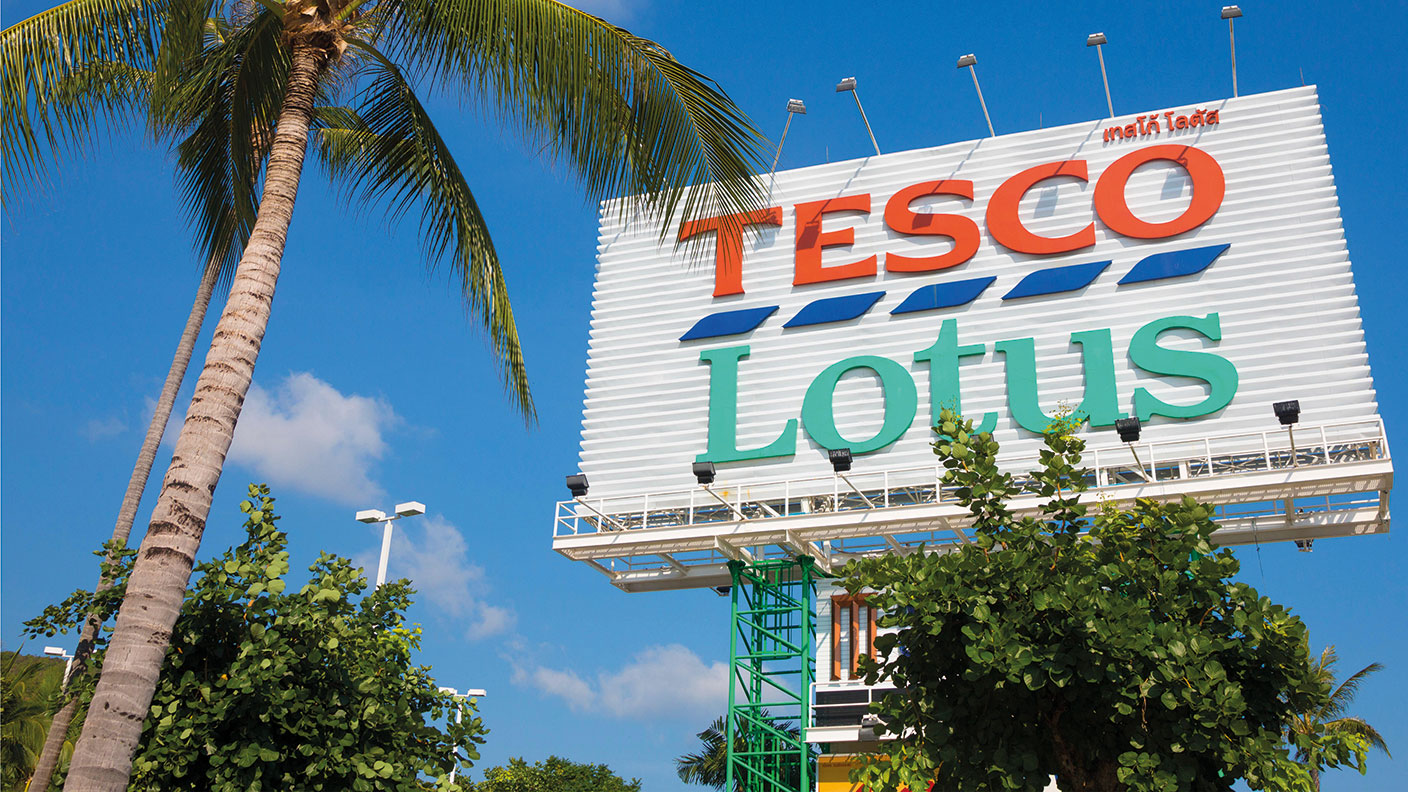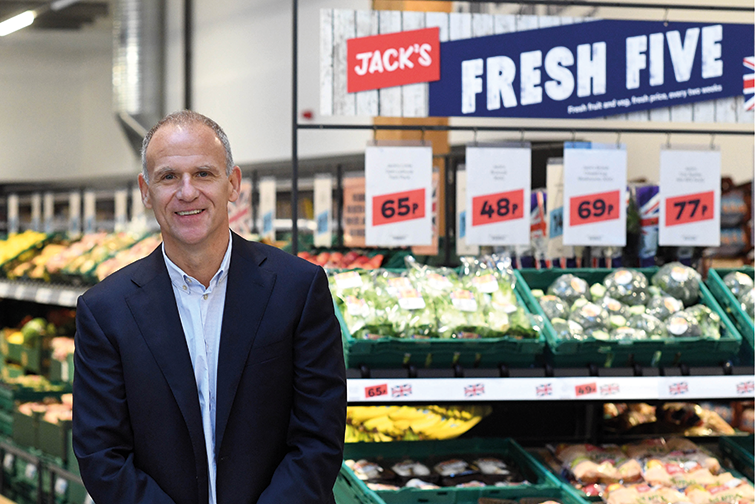It’s time for an orderly retreat in the supermarket wars
The big four supermarkets could spend billions taking on the discounters. But the City should not allow them to, says Matthew Lynn.

Get the latest financial news, insights and expert analysis from our award-winning MoneyWeek team, to help you understand what really matters when it comes to your finances.
You are now subscribed
Your newsletter sign-up was successful
Want to add more newsletters?

Twice daily
MoneyWeek
Get the latest financial news, insights and expert analysis from our award-winning MoneyWeek team, to help you understand what really matters when it comes to your finances.

Four times a week
Look After My Bills
Sign up to our free money-saving newsletter, filled with the latest news and expert advice to help you find the best tips and deals for managing your bills. Start saving today!
There probably won't be much of an opening ceremony. Someone might hand out a few competitively priced cheesy nibbles. There might be a bottle or two of Bulgarian ros on hand. At best, someone from local radio might be asked to come over on the bus to cut the ribbon. Indeed, when Sainsbury's and the Danish discount chain Netto launch their first store together in Britain, they will no doubt do it on the cheap. This is, after all, the world of price-cutting supermarkets, and the appearance of frugality is just as important as rock-bottom prices.
The tie-up is the first, and so far the boldest, response by one of the Big Four' supermarket chains to the rise of Aldi and Lidl. Sainsbury's has decided that if you can't beat them, you might as well try and join them.The trouble is, it's not likely to work. Ten years ago, firms like British Airways tried to halt the march of budget airlines such as Ryanair and easyJet by launching their own low-cost carriers. None of them worked. The reality is that the Big Four could easily spend billions trying to take on the discounters and protect their market share. But the City should not allow them to. The best thing the Big Four can do now is admit they have to get a lot smaller and then get on with it.
The big grocery chains Sainsbury's, Morrisons, Asda and, above all, Tesco were for two decades among the most successful companies in the UK.Nothing appeared to stand in their way. Tesco reached the peak of its powers three years ago, when one in every eight pounds spent in the country went through its tills.
MoneyWeek
Subscribe to MoneyWeek today and get your first six magazine issues absolutely FREE

Sign up to Money Morning
Don't miss the latest investment and personal finances news, market analysis, plus money-saving tips with our free twice-daily newsletter
Don't miss the latest investment and personal finances news, market analysis, plus money-saving tips with our free twice-daily newsletter
They have been caught out by the discounters, however, as Aldi and Lidl have expanded aggressively across the country. Already the pair have taken about 7% of the UK grocery market, and that is forecast to double over the nextfive years. Rather like the budget airlines, the discounters are not offering a product that is very different from the established players, they are just providing a cut-down, no-frills version, and accepting far lower profit margins.
This has been terrible for the Big Four. They spent the last decade aggressively expanding across the country. Between 2004 and 2010, Birmingham, for example, saw the number of major supermarkets increase from 19 to 104. That was a massive rate of expansion, and a bet that so long as they kept building more space, the chains could keep on taking market share from local retailers. Shoppers would always be found to fill the aisles.
It hasn't happened. Tesco and Morrisons are now seeing their sales falling at an increasing pace. Sainsbury's is starting to decline, and Asda is flat. Tesco and Morrisons have seen their shares fall heavily, and the managements of both companies are under huge pressure to turn the situation around.
In some ways Sainsbury's deserves credit for taking the fight back to thediscounters. By teaming up with Netto it can launch its own discount brand, while in theory not taking sales from its main chain. If the discounters keep on growing, at least it will have a share of that action.
Yet history suggests that these kinds of initiatives rarely work. Companies findit incredibly difficult to make the transition from one business model to another. It didn't happen in airlines.It hasn't happened in media, or technology. And it probably isn't going to happen in groceries either. Even though Sainsbury's is working with a company that knows how to sell cheaply, that isnot its culture and it is very hard to change that.
All these new plans will require huge investment. Over the next few years, the Big Four may well burn their way through billions of shareholders' money trying to come up with a way of reversing a declining market share. It is very unlikely that any of them will work. The hard truth is that they built too much capacity during the boom years, and they created a business model that relied on margins that were far too generous. At the height of its dominance, for example, Tesco had margins of 6.1%, compared to the 3% earned by its American rivalWalmart, and probably far less at Aldi.
Now the Big Four face structural decline. The best thing they could do is to start closing stores. Many stores will never make a decent return on the money it cost to build them. And they should start accepting that they will have to live on far lower profit margins 1% or less will probably be the best they can hope for.
The existing managers are very unlikely to face up to that. Corporate bosses never want to preside over a business that is getting smaller, and they will run through dozens of wheezes in an attempt to escape their fate. It would be better if the City, and their big shareholders, just told them to forget it. Attempts to maintain their market share should not be indulged. The supermarkets need to come up with a plan that involves getting a lot smaller and a lot cheaper and anything else is just wasting their shareholders' cash.
Get the latest financial news, insights and expert analysis from our award-winning MoneyWeek team, to help you understand what really matters when it comes to your finances.

Matthew Lynn is a columnist for Bloomberg and writes weekly commentary syndicated in papers such as the Daily Telegraph, Die Welt, the Sydney Morning Herald, the South China Morning Post and the Miami Herald. He is also an associate editor of Spectator Business, and a regular contributor to The Spectator. Before that, he worked for the business section of the Sunday Times for ten years.
-
 How a ‘great view’ from your home can boost its value by 35%
How a ‘great view’ from your home can boost its value by 35%A house that comes with a picturesque backdrop could add tens of thousands of pounds to its asking price – but how does each region compare?
-
 What is a care fees annuity and how much does it cost?
What is a care fees annuity and how much does it cost?How we will be cared for in our later years – and how much we are willing to pay for it – are conversations best had as early as possible. One option to cover the cost is a care fees annuity. We look at the pros and cons.
-
 How to profit from rising food prices: which stocks should you invest in?
How to profit from rising food prices: which stocks should you invest in?Tips Food prices are rising – we look at the stocks to avoid and the one to invest in this sector.
-
 Tesco looks well-placed to ride out the cost of living crisis – investors take note
Tesco looks well-placed to ride out the cost of living crisis – investors take noteAnalysis Surging inflation is bad news for retailers. But supermarket giant Tesco looks better placed to cope than most, says Rupert Hargreaves.
-
 Morrisons takeover bid: supermarket is an attractive target for private-equity buyers
Morrisons takeover bid: supermarket is an attractive target for private-equity buyersNews A private-equity group has made an offer for Morrisons, Britain’s fourth-largest supermarket. Other bids are likely to emerge. Matthew Partridge reports.
-
 Morrisons is just the start – get ready for a private equity feeding frenzy
Morrisons is just the start – get ready for a private equity feeding frenzyAnalysis The bid to buy the Morrisons supermarket chain is the latest example of UK listed companies being snapped up by private equity groups. It won’t be the last, says John Stepek – we could well see a feeding frenzy before this is all over.
-
 Tesco sells its retail subsidiary in Thailand and Malaysia for £8bn
Tesco sells its retail subsidiary in Thailand and Malaysia for £8bnNews Tesco has agreed to sell its southeast Asian operations to Thai conglomerate Charoen Pokphand for £8.2bn in cash.
-
 Tesco should keep its Asian assets
Tesco should keep its Asian assetsOpinion The £7bn that Tesco could get for its Tesco Lotus business in Asia looks enticing. But holding on to it would be smarter, says Matthew Lynn.
-
 Tesco cashes out of the mortgage business
Tesco cashes out of the mortgage businessFeatures Tesco Bank has left the mortgage market by selling its £3.7bn loan book. Its 23,000 customers will be moved to the Halifax, a subsidiary of Lloyds.
-
 Tesco wields the axe
Tesco wields the axeFeatures Britain’s biggest supermarket is cutting back on staff and fresh food. Will the move prove counterproductive? Matthew Partridge reports.